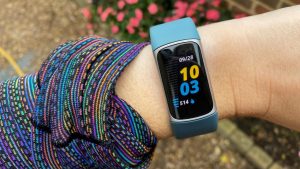Men: How to Successfully Have A Good Time At A Club

Men: How to Successfully Have A Good Time At A Club
Student: “I don’t know what it is Shiela, I love going out and just love the thrill of meeting women, but I don’t know what happens, I just hate it when you take us out to the bars and clubs, I just completely shut down.”
Shiela: “Welcome to NYC, just like Vegas if you let it get to you, the house always wins, that’s why I’m here… to teach you how to win and push your ass!”
I’m going to paint a little picture for you of what your typical Friday or Saturday night out with the bros might be like.
It’s 7:00pm and you’re sitting on your couch contemplating whether or not you should stay in tonight. You pop open a beer and kick your feet up on your coffee table to either catch up on Netflix shows or put on your Xbox to play some long awaited Madden, when suddenly from across the room where your phone is charging, a loud vibration goes off.
In your mind and heart, you know that it’s your best friend on the other end ready to sell you on an epic night out with the bros, tons of booze, awesome club tunes, and most of all… meeting beautiful women.
You’ve recently just got out of a long relationship with your girlfriend of two years, and the last thing you want to do is to go out with the guys and try your luck at finding love, having some fun, and a little something to help you forget about your ex. You walk over, check your phone, and see a few missed calls and multiple unread messages, a voice mail, and a bunch of notifications.
Deep down inside, you hoped it was your ex trying to reach out and see if you were down for a night to rekindle an old flame. You pick up your phone and see that it wasn’t your ex begging for you, but your best friend who may come off as an obnoxious jackass but at the heart of it all means well, and like Vince Vaughn’s character in the iconic film Swingers, would love nothing more than to get you out of the house for the night, get your mind off your ex, and have some fun with him and the bros.
You relent and decide to prepare for the night, this time as a single man ready to mingle. You call your best friend and tell him to come over with a few handles of whiskey and the crew at 10:00pm. As nerve-wracking as going out may be, you hop into the shower, amp yourself up, get a clean shave on, pop the deodorant, trim the nose hairs and the hair in between your eyebrows, and grab the good ol’ Aqua Di Gio cologne and spray it behind your neck, ears, armpits, across your chest, and a little down below.
As you’ve got some good hype up music playing in the background to get you into a good state, you open your closet, pull out a freshly ironed button down, a pair of fitted jeans, a pair of low cut boots, and a belt. You pop on your club attire, put some product into your hair, and style it into place.
Just as you leave the bathroom, the doorbell rings. You look at the clock and realize it’s already 10. Just as expected, it’s your best friend and the bros with a few handles of Jack and some soda to chase it down. They compliment you on your style, and you guys high five, hug, and fist bump as you pull out the ceremonial shot glasses.
One shot, two shot, three, and four, and all of a sudden your legs feel a little lighter, you’re feeling a little less antsy, and after about 45 minutes of the ceremonial pre-game, you hail an Uber to usher you and the crew to where all the action is.
Check out this video for some basics:
After another half hour swerving through traffic, hearing the bros talking about the amount of pretty girls that are gonna be in the club tonight, and all the tactics and strategies of what to do when one of you guys score, your buzz starts to wear off and you feel this pit of anxiety being back out in the field as a single man. The Uber finally pulls up to the club around midnight. As you get out of the car, you notice troves of people walking around and towards the long line to get into the venue.
You take in everything, from the sounds of stilettos and wedges hitting the concrete, the smell of the city streets with tinges of perfume and various colognes, cigarette butts on the ground, a velvet rope to keep the line in order, a few 6 foot something 300+lb gatekeepers surrounding the doorway, and the loud dialogue in the background consisting of verbalized emojis, laughing, and gossip.
Just being outside is already quite overwhelming for you, but you hop on the line anyway. After another half hour on the line watching people come in and out of the venue, from drunk stumbles, to loud singing, and your occasional 911 call, you finally make it to the front with your crew. Standing on line sucked the energy and excitement out of you.
Then, just as the bouncer was about to make you pay a cover charge and for bottle service, your best friend manages to befriend and persuade the large gatekeeper from ending your night early and getting you into the venue both cover charge and bottle service free.
You make it into the club, and it’s 3 floors of sensory chaos. It’s dark, with the DJ playing remixed versions of the top 40 hits, girls are bumping and grinding, and guys are on the dance floor trying to dance as if they were peacocks trying to spread their feathers to attract the right mate.
It’s shoulder-to-shoulder, and your crisp button down is already drenched in sweat and a few tinges of people’s drinks from when they bumped into you as you were walking towards the bar. You and the boys struggled to make it through the wave of big hair, Jimmy Choo heels hitting your toes, and male crotch unintentionally hitting your backside as you navigated your way through the dance floor.
You make it to the bar. Instead of looking and feeling as fresh as you did when you got out of the shower, you feel like you just went to a New York Jets tryout for the running back position considering the amount of people you plowed through to get your next dose of liquid courage. You and the guys slam back a few more drinks.
The guys in your crew who were bragging about talking to women on the car ride over and making plans suddenly become on-lookers and hawkers in the corner, clenching their beers in front of their chests. Your best friend disappears into the dance floor to try his luck, and you’re suddenly faced with the dilemma of trying to figure out who to talk to, considering how loud the music is.
An hour goes by, nothing. Two hours, nothing. Suddenly, last call comes along. As the troves of people slowly disperse out of the venue and all your friends disappear, you suddenly realize and ask yourself why the hell did you decide to go out in the first place when you could’ve been on your couch catching up on your shows and drinking for free.
You try your luck again and every girl you come across is either drunk, standoffish, or coldly blows you off assuming you’re going to hit on them, even though you’re just trying to find your friends at this point in the night and also alleviate your loneliness.
You look at your phone and check the group chat. It turns out that a few of them left for another bar, one ended up getting kicked out, another got plastered and ended up passing out behind one of the tables in the VIP section, and your best friend and partner in crime managed to find someone, head back to her place, and close the deal. He sends you a picture of her and him, and you feel a twinge of jealousy.
It’s now 4:00am. You leave the club, grab a slice of pizza by yourself, hop in the nearest cab, and enter your apartment with the scent of the night still lingering in the air. You clean up a little bit, slip out of your clothes, and just decide to pass out in your underwear, wondering again what the point of the night was. You think about your friends, you think about your ex again, and as you hear the birds chirping, you fall asleep as the sun comes up to start the new day…
I didn’t mean to make that story sound depressing, but my job isn’t to paint sunshine and rainbows for you. For a lot of men who are either new or more experienced with dating, one of the biggest questions I get is how to successfully navigate the nightlife, and how to meet women in the bars and the clubs.
The scenario I just painted out for you might be a common occurrence, maybe even something you yourself can relate to. Learning how to successfully navigate a bar or club environment is incredibly difficult. For most guys, ranging from your average Joe to even your handsome magazine cover model, face that fear on a regular basis. It’s high-pressure and can often feel like a life or death situation.
But the only thing that’s really at stake is your male ego and pride. After going out and coaching in one of the most difficult nightlife cities in the world, like I always tell my students, “The house always wins, that is until you put your pride aside and not do what 99.9% of men do when they go out to a bar or a club.”
Before I get into the phases of the night, and what you should be doing to successfully meet and connect with women in bars and clubs, I’m going to start off with the “why” first.
Why It’s so Hard to Meet Women in Bars and Clubs
Men are both fascinated and scared of going out and trying to talk to the dressed up bombshells they see in the bars and clubs. Despite the fact that the majority of men don’t meet anyone during a typical night out, the hope and desire to meet and pick up someone while having a drink or on the dance floor is very appealing.
Nightlife is consistently one of the most challenging places to meet and connect with women for a few major reasons:
1. Women are very perceptive.
They are aware of the fact that as a stranger, one of the reasons you’re interacting with them is to try and pick them up. It’s really hard to think of a legitimate thing to say to a woman at a bar or club in order to open up and have a natural conversation. Women are usually out with their friends to have a night of fun.
She knows exactly why you’re coming up and talking to her, which makes it discouraging for most men. It’s much easier to start and have organic conversations with women just about anywhere else, from grocery stores, public transportation, the mall, bookstores, coffee shops, etc. because you’ll always have something relevant and congruent to point out and ask.
2. Bars and clubs are intimidating.
There’s a reason why men drink so much: to become unaware of the fact that they feel intimidated approaching and interacting with women in bars and clubs. Your confidence level at a bar might be lower than any other environment because of the mere fact that you’re just hanging out and not really doing anything else.
When you talk to a girl in a normal day to day situation such as picking up your dry cleaning or shopping in a bookstore, you always have a legitimate reason to be there. It’s much easier and lower pressure to approach and start a conversation with a girl in these settings compared to the nightlife, where she has her guard up and has equally intimidating friends surrounding her.
3. The real commodities these venues sell is sex and social status.
Because of this phenomenon, nightlife venues are mostly catered towards men. The gender ratio in most bars and nightclubs are pretty skewed, and 9 times out of 10 it’s usually a ratio of 40% men to 60% women. It’s one of the only businesses in the world where they can refuse entry based on what you look like and how you’re dressed.
Here are a few variables that come into play in a night club that make it difficult to meet and connect with women:
Music and Lighting
The loud music and vivid lightning affect you at the sensory level, making it difficult to navigate the venue and talk over the music or hear what other people are saying.
Drugs and Alcohol
These substances affect your perception and short-term memory. Dis-inhibition occurs when you drink alcohol, and depending on if you decide to take any drugs and what type, along with the alcohol it tends to make people more outgoing and louder.
Alcohol removes top level cognitive processes and hardwired traits that are meant to keep us safe from threats and harm, like etiquette for example. Our natural biology takes over once this is removed. Our main primitive drives center around things such as food, water, sex, and aggression. With alcohol and less inhibition from social norms, it allows these biologically primitive drives to rise to the surface and control more of our behavior.
There’s a reason why food is always served at bars, or why there are so many fast food joints and pizzerias near nightlife spots. The last thing you’d want after a night of drinking and some bumping and grinding is a salad. Along with sex, most men and women are out for a night to meet, connect, and procreate.
Aggression is another common biological drive, especially in men. If you’ve ever been out past 2:00am or even before that, you’ve probably noticed fights breaking out near the bars and the clubs, and occasionally inside.
Sex and Social Status
Sex and social status are the main commodities sold at these venues. A whole different set of social rules come into play once you enter one of these venues, which makes it difficult to hook conversations with the girls you’re attracted to, or any girl that you might come across in a night club or bar environment.
How to Navigate the Nightlife
With the “why’s” out of the way, always remember this analogy. The bars and the clubs are a lot like casinos. They’re designed for one purpose and one purpose only… “making money.” It’s a business first and foremost, and it’s a cognitive nightmare for both sexes, so you’re already at a natural disadvantage.
Bars and clubs are very loud, which take away your ability to hear your friends or a girl you’ve just met and are trying to converse with. It’s also dark, which makes it difficult because women can’t see what you look like. This is distracting and it makes them put their guards up even more.
For example, think of a casino and why you lose so much money. From the loud noise, the lights, the colors, the sounds of the slot machines constantly going, the free drinks, and constant chatter, it’s all meant to distract you as the gambler, because the casino’s job is to keep the cash coming out of your pockets to keep the lights on and the business going. It’s meant to cognitively overload your senses so you’re not making sound and rational decisions.
Now don’t get me wrong, this post is not meant to bash on the nightlife. In actuality, even though I’ve calmed down significantly from my wild college days, I still enjoy the nightlife and going out to bars and clubs for some fun with friends, and to coach men in the art of finding love. But for most men, going out in the nightlife is a burden.
So as I always say, take this advice piece by piece, because the nightlife can be pretty unpredictable and is not always the same every time you go out or are in a new city. What I will tell you is that over time you will notice consistent patterns. Think of this as a compass or a map you can refer to every time you get stuck or feel frustrated when you’re going out to meet women.
At this point I’m going to assume that you groom yourself well, dress well, feel comfortable in your clothes, and that your body and breath smell good. If not, once again please go make an active effort to package and clean yourself up. I’m not a fashion guru, but these little things count, especially when you’re going out to a club or bar.
Remember, women put in tons of time and effort to look good when they’re going out. Think about the hours and even days put into getting their hair done, taking hours to put on layers of makeup, picking the right outfit, and finding the right shoes ranging from uncomfortable heels, wedges, and stilettos.
My point is, take some time to groom yourself. You don’t need to dress like a GQ cover model. However, you should wear clothes that fit and are comfortable and breathe well, pluck your nose hairs and mono brow, trim your beard, get a nice haircut, put on some deodorant, cologne, and most of all make sure your breath does not smell. Besides brushing your teeth, always carry a pack of gum or breath mints.
My job is to make sure you’re prepared for any situation, and that you don’t come off like the bulk of the men out there trying to succeed at the dating game and constantly failing.
Step 1: Mindset & Energy
Before ever going out, whether its with your bros, friends, crew, or even by yourself, it’s essential you get yourself into a good mindset before you ever get the night started.
First and foremost, you need to remind yourself that no matter what happens, you’re going to have a good time, have fun, and enjoy the night. Oftentimes, men psych themselves out and turn a night of going out into a pre-fight or pre-game ritual, kind of like what you see professional athletes do before the game even starts. Like I said, this isn’t the Super Bowl. Remind yourself your primary purpose before ever going out is to enjoy the night and to have fun.
A few things I’ve always recommended to my students and do myself to relax, get in a fun and silly mood is:
Watch something funny.
My personal vice is watching Dave Chappelle’s stand-up and old episodes of Chappelle’s Show. Laughter is contagious, and once you start going, you’re already in a good, relaxed, and easygoing mood. I always find myself turning everything into a joke or getting everyone around me to laugh because I’m already self-amused from watching an hour of comedy.
Start singing along to music.
Whether it’s the top hits they play in the club, old school hip-hop, or whatever your preference is, music brings out good vibes and good emotions. There’s a reason why everyone in the bars and clubs sing along when the DJ puts the top hits on.
The Rockstar Effect is very important to keep in mind with any nightclub or any music for that matter. The Rockstar Effect refers to the release of oxytocin during singing. Oxytocin is a hormone that produces feelings of trust, morality, and love in humans, and it’s released by both sexes during the act of sex. Hence, besides nightlife, there’s a reason why hundreds of thousands of people will go to music festivals, raves, and concerts because of this phenomenon.
Music and emotions go hand in hand. The key takeaway here is that even if you’re in a bad mood at the bar or want a quick hack to get into a happy and easygoing mindset, go play, listen, and sing along to a song from the top hits to get you into a good mood. As stupid as this sounds, in order to amp up my energy and get me into a going out mood, I used to sing along to “Shake it Off” by Taylor Swift, or even rap music like “Work” by A$AP Ferg.
The point is, lighten up and use whatever you can to get in a good frame of mind, whether it’s music, comedy, or even hanging out with your friends and playing cards and getting a few drinks into your system.
Energy is one of your most valuable assets if you’re going out.
Emotions are contagious and girls are out for a night of fun. Whether it’s your stereotypical “woo!” girl or your Average Jane, women are receptive to energy. Now I’m not telling you to act like a coked out maniac like Scarface, but it’s important to get a read on the venue you’re going into and a feel for the room or the group of girls you’re trying to interact with.
A good rule of thumb is always to keep your energy level one notch above the group you’re trying to hook, and then once you hook, bring your energy level back down to theirs. So if it’s a wild and crazy group, you want to bring your energy up a little higher than theirs. If it’s a laid back or mildly energetic group, go in one notch up from theirs, not 20.
Knowing how to manage your energy, create it organically, and leverage it to meet and connect with attractive women is a valuable asset. If you struggle with energy, I recommend taking a step back and doing the things I just recommended. Start laughing, get into a self-amused state, and watch some comedy or sing along to music that gets you in an uplifted and energetic mood.
Step 2: Get There Early & Build Your Momentum
Like that old saying, “The early bird catches the worm,” the same is true for efficiently making the most out of the nightlife. This rule is consistent for most major cities, but some cities like NYC for example usually start around 11 PM with the night peaking around 1-2 AM. I recommend getting in an hour or half hour early if you know when the venue starts picking up. Each place is different, but if you already know it’s a good spot and has a good girl to guy ratio, drop your anchor early and set up shop.
Others cities start earlier, but my point is, the earlier you get into a venue, the better. This gives you a significant time to warm up and get into a social mood, befriend the club staff, and chat up and befriend the first groups of people who get to the venue early. A few other perks to getting in early sometimes include not having to pay for a cover charge or bottle service.
I like to take advantage of this time to build my momentum for the night and start befriending and being social with all the pretty girls that arrive early. The music isn’t too crazy yet and it’s still a lounge type environment, which gives you plenty of time to take advantage of being able to hear and talk to whatever girl you’re attracted to.
Another thing I’ve learned, both from my years of going out and coaching in one of the toughest nightlife cities in the world, is that nine times out of ten, the first groups of girls that get in are very attractive. Befriending the first sets of girls entering the venue gives you the chance to develop that emotional equity and connection. It’ll come in handy later on in the night when the waves of horny men enter the club.
Because you’ve managed to develop a little bit of comfort, attraction, and emotional equity early on, and if you’ve won her friends over, once you bump into her later on in the night, she’ll have her guard down with you and will most likely try to keep you around to protect her and her girlfriends from all the horny guys walking around in the venue. From that point on, it’ll be a lot easier to escalate things and seal the deal with her.
Step 3: Be Social
As I’ve mentioned before, these venues sell sex and social status. Another advantage that comes with going out early is that it creates social proof or what I like to call social leverage. This is more of a long-term strategy and it pays to know people and have a regular spot you can go into and consistently meet, attract, and connect with attractive women.
Like I said, once you arrive early, the first thing you want to do is get into a social attitude. Don’t do what 99.9% of guys do when they enter most nightlife venues… DON’T STAND IN THE CORNER, CLENCH YOUR DRINK TO YOUR CHEST, AND STARE AT A GIRL! Etch that into your brain, or better yet, get it tattooed onto the back of your scalp so you remember that. Unless you’re Leonardo DiCaprio, women aren’t going to take the initiative to approach you 99.9% of the time. Don’t bullshit, stand around, and do nothing.
By being social, talk to everyone. It always irks me how people treat the club staff and never acknowledge them. Maybe it’s from my years of working in the service industry that I can relate to these folks, but DO NOT TREAT BOUNCERS, DJ’S, SECURITY, COCKTAIL WAITRESSES, SHOT GIRLS, BARTENDERS, AND ANY CLUB STAFF LIKE SHIT! They are the gatekeepers and it pays to have them as friends and as your social assets in the long-term.
Ask the bouncer how their night is going, make small talk, tip them well, and remember their name. This goes for the bartender, cocktail waitresses, bottle service, shot girls, and hostesses. Also, I know they’re pretty but please avoid the urge for the next few months let alone that night to try and pick them up. Remember you’re playing the long game, and value counts if you want to know how to effectively navigate and succeed in the nightlife.
If it’s a loud dance club, don’t expect the staff or the bartender to chat you up unless you get there pretty early or befriend them outside of the club. Otherwise, if you do get there early and it’s still a loungey area, take the time to make small talk with the bartender and do what you just did with the bouncer. Befriend them, ask them how their night is going, tip them well, and call them by their name.
The key takeaway here is that just like Las Vegas, New York City and any major nightlife city is built on handshakes. Pretty girls notice you talking to the staff and being social with everyone else. It’ll automatically defuse them as they know you’re not a psycho or creep. Since you know people, you must be normal. They won’t know your relationship with the staff or the bartenders, but they’ll assume that you know them and must have some social value since you’re chatting with them.
After consistently doing this for a few months and taking the time to invest in whatever your favorite venues might be, once you know every staff member on a first name basis and they know you and share club perks and treat you as if you were part of the club’s elite, you’ve got the “Venue on Lock.” Attraction is a perception of value, and having a “Venue on Lock” will just make it a lot easier for you.
Whether you’re looking to impress a girl you’re attracted to, want to meet more women, hook your friends up with new girls, or just want to have a go-to spot in a major nightlife city and hang out with all your good friends, this can be a reality if you apply these tips I’ve just covered.
Step 4: Be Social – Part II (Introductions)
Don’t be an overenthusiastic high-fiving maniac. I see guys do this all the time, and while I love high-fiving everyone, I don’t go crazy with it. Remember to just be friendly, finesse, and work the room.
How to open a girl after working the room:
While this depends on where you’re at with your confidence and how well you manage your approach anxiety, here’s an example of a simple interaction when walking up to a girl and opening her:
- “Hows your night going? I’m Shiela, and you are?
- “Hi! I’m Natalie and I’m having a great night!”
- “Oh Natalie, what a cool name……blah, blah, blah”
If you’re still feeling anxious after working the room and even building your momentum, remember to cultivate a carefree attitude and let go of worrying about what other people think of you. Most people in the club won’t even notice or give a fuck if you get rejected. If anything, you’ll be given more props by the ones who do notice.
Step 5: Think Outside the Box, Take Advantage of the Outliers
Most men, whether they’re new to the nightlife or the dynamics of a bar or club, or even more experienced, always seem to forget that the entire night is a party. It’s a party in the cab, a party in the streets, a party on the line, and a party in the venue. You don’t always need to meet women inside the bar or the club. Since you’re going to lose the ability to talk, hear, and even see well, it’s important to take advantage of the times that you can talk and connect.
My students always ask me how I manage to hook and connect with women I just met inside a loud dance club. Planting your seeds early is important. In case you don’t get into a venue early and manage to do the things I just mentioned in the previous steps, then make an active effort to talk, befriend, and connect with women on line into the venue or on line to the bathroom, in the smokers section patio, or the balcony or lounge area if there is one.
It’s relatively easy to make some small talk, ask them how their night is going, be friendly, be positive, don’t be needy, and introduce them to your friends and even the club staff if you’ve already befriended them. Once you do that and if her and her friends are not in a rush, take the initiative and move them to the bar and buy her and yourself a drink. If you can’t do it right away, once you bump into her again later on, then attempt to move her.
In addition, make an active effort to look for the girls who look disengaged or look like they’re not having fun in the group. If you’re trying to find a way into a social group that consists of pretty girls, it’s good to befriend the girls who seem disengaged or are more on the shy side. Be friendly, be social, and make them feel comfortable around you. Like having the club staff on your side, getting her on your side is another form of social leverage.
Step 6: Oh Captain, My Captain… Follow the Leader
I don’t mean this literally, but it’s important to identify the leader of each social group you’re going to be interacting with and making an active effort to befriend them. Whether it’s the birthday girl, the birthday guy, the alpha female, or the alpha male, it’s important to befriend them and understand that winning them over means winning the group over, which means winning over the girl you’re attracted to.
This is another form of social leverage, and having them on your side will do you wonders. Be friendly, match their energy level, be cool, buy them a drink if it’s their birthday, and most of all acknowledge and validate them. They hold the social cards, and if you want an easy way to get close to a specific girl you’re attracted to or have access to all the girls in the group, then it’s essential that you befriend the leader.
They will also give you the necessary information you’re going to need to know like who’s who, who’s dating who, who’s single, etc. Most of all, if the leader of the group is single, attractive, enjoys your presence, and feels comfortable around you and not threatened, she’s another option for the endless options you have just created for yourself if you’ve followed all the previous steps up to this point.
Step 7: Speed Kills
Once again, I want to remind you that the nightlife moves 10 times faster than normal day-to-day interactions with women. Bars and clubs are designed for one purpose and one purpose only, and that’s to make money. It’s cognitively distracting and there are tons of things going on around you both outside and inside the venue.
It’s difficult to keep a girl’s attention on you, so it’s important that once you have managed to get past basic social comfort and developed a little bit of sexual tension with her (assuming you’ve managed to win her friends over and earn their trust and thus move her away to a more private and intimate part of the venue or somewhere outside of the venue at a neighboring lounge), it’s important to get seductive and move things forward with her sexually.
Prolong your touch. If she’s receptive, break in and out of her space and go in for a kiss. Remember to test constantly and adjust your behavior and approach based on how she feels around you. If she doesn’t want to kiss and make out right away or feels tense, then take a step back, bring her back to her friends if she wants to go back, and just hang out until she loosens up and feels a little more comfortable with you. Trust is important, but knowing how to develop that trust quickly and escalate things quickly is important when navigating the nightlife.
This rule also applies to if you’ve been blown out and rejected by other groups of women. Don’t stand in the corner and submit right away. Immediately hop into another group and befriend and be social with the surrounding people; your ability to recover quickly will do wonders for not only your confidence and self-esteem but also re-frame you in the eyes of the whoever just rejected you.
I can’t tell you how many times a girl that rejected me early in the night tried to “bump into” and re-engage with me later on after I’ve worked the rest of the room and managed to meet and connect with another set of pretty girls.
Not every rejection you come across is a total rejection, so all I have to say is, get into auto-pilot and don’t hesitate. My point is to stay active when you’re in the venue and reflect later. Everything moves faster in the nightlife and it’s important to maintain your pace even if you hit a few roadblocks early on.
Step 8: Work the Dance Floor
I love dancing and working the dance floor. Just because you’re not a good dancer, or you find the amount of people around you intimidating, don’t automatically rule out the dance floor to meet, attract, and connect with pretty women. You don’t have to know all the craziest moves in the world, be a world class break dancer, or move like Channing Tatum (but it certainly can help if you do).
Here are a few things to keep in mind in order to successfully work the dance floor:
Don’t linger in the corner and stare.
Lingering around and staring is creepy as hell, and so many guys do it. Move around, start shaking your hips, twerk, c-walk, bust some moves out and move to the beat of the music. The point is to have fun and enjoy the music; dancing is fun and silly. If you’re having fun, women will pick up on that and start moving towards you.
Take some basic dance classes.
I recommend taking some basic ballroom or even salsa dancing classes for fun in your free time. You don’t have to move like a world class dancer, but if you know the basic movements and how to lead, you’ll have an easier time meeting girls on the dance floor.
It’s 90% non-verbal.
Since it’s so loud and energetic on the dance floor, don’t try and have a conversation with her as if you two were at the bar or lounge part of the nightclub.
Always approach her from the front where she can see you. It’s creepy and cringe-worthy when I see guys come from behind and start randomly grinding on a girl. 9 times out of 10, she immediately gets creeped out, and in some cases will make a scene or even throw a drink in their face. I’ve seen this happen plenty of times.
Smile as you’re dancing, and if she reciprocates, take that as a signal to lightly grab her hand and spin her. Spin her a few times and hold her hands as you dance to the music with her. Then gradually pull her in closer and break her space (you can do this faster, but it all depends on whether she’s tensing up or feels comfortable with you).
From this point, it’s really easy to escalate with a girl on the dance floor, assuming she’s digging your dance moves, is moving with you, and is moving in closer as you’re moving in closer to her space. I usually go for a quick introduction by pulling in closer to her ear, and after a few more spin moves and some silly booty shaking and grinding, I move in for a quick kiss on both cheeks. If she’s receptive, move in and go in for the kiss.
Once you’ve made out with her for a few times, tell her to come with you to the bar. Get yourself and her a drink and introduce her to your friends as she will introduce you to hers. After some small talk and getting to know each other, take her to the intimate part of the venue and continue where you left off with the sexual tension you built with her on the dance floor.
Extra Nightlife Tips & Strategies
Pay attention to the girl to guy ratio in a club. Sometimes it obvious, while other times it’s more subtle. Another reason why I recommend going out early, besides building momentum, social proof, and developing your social leverage, is because it progressively gets harder and harder to meet women as the night goes on. One of those reasons, besides being intoxicated with alcohol, is the amount of men present in the venue.
Girls are highly aware of their value and safety. Early on in the night, girls (especially the attractive ones) won’t completely have their guard up and will be more open and receptive to friendly small talk and banter. It’s easier since there’s not too many guys out in the venue. Once peak hours hit, it turns from a sophisticated game of poker or blackjack where you can still control the odds, to a game of pure chance like pulling a slot machine or playing roulette.
When there are tons of guys in a venue, it gets competitive, and girls will have their guard up because they’re worried about being sexually assaulted by a drunk, creepy, or belligerent guy. It’s also physically intimidating for girls since men are naturally bigger, stronger, and more prone to aggression and violence. Just be mindful of the amount of men in the venue. More guys equals less opportunities.
So pay close attention to the line outside, and if it looks like there are more men than women, look at the amount of men lingering on the dance floor or even by the bar. If there are more guys in the venue, that’s you’re cue to leave and move on to the next venue or call it a night, depending on how late it is.
Remember what I said about the nightlife being a party everywhere, and that everywhere you go is an opportunity to meet, attract, and connect with a pretty girl. If you’ve struck out of the venue or got in late and haven’t had a chance to take advantage of every single step I have provided for you, remember there’s always troves of women moving around the streets.
After the club or the bar, before heading home and calling it a night, a few places you can meet women can range from the local pizzeria, to your local fast food joint, a food truck, or food cart. My point is, look for where the food is and make small talk with everyone. Bring your crew with you too, so you don’t look creepy or incongruent with the scene.
At this point in the night, most girls don’t really give a shit about how they look. They’re mostly concerned with grabbing some food, taking care of their friends who are too drunk, and getting home safely. I can’t tell you how many phone numbers and dates I’ve managed to secure even after all the craziness of the club has ended. While everyone is already exhausted and ready to call it a night, I usually make casual small talk on the line wherever I’m getting food and apply the same playbook I applied early on in the night.
Be social, build rapport and comfort, make light of the situation, and make plans for the following day or at some point during the week if she’s down to hang out. You can also apply this if you’re taking public transportation home such as sharing a cab with someone, an Uber pool, the drunk bus, or the drunk train home. My point is, the nightlife has options at every phase of the night. From the warm-up, the climb, to the peak of the night, and the comedown.
I realize this post was long and is a lot to take in, so take it piece by piece and step by step. I’ve read multiple guides from dating gurus, coaches, matchmakers, and club promoters on how to successfully handle the nightlife and what I found was that while the guides were very helpful when I was first trying to figure this stuff out, they were just not comprehensive enough and only covered a tiny part of the big picture.
From my experience working in one of the most iconic and toughest nightlife cities in the country let alone the world, I didn’t want to leave a single detail out for all of you guys who just can’t seem to crack the code for dealing with the bar and club scene.
On that note, always remember that the nightlife doesn’t have to suck. Don’t focus on the results or trying to hook up with the first girl you’ve just interacted with in the club, forget about the sex, and just remember to have fun and don’t let anything affect your ability to enjoy the night!
For plenty more ideas and options for meeting women besides the nightlife, check out our article on the 20 Best Places to Meet Women Besides Bars and Clubs.
‘Til next time… Take care for now, we’re always here for you guys!
-Shiela









Post Comment